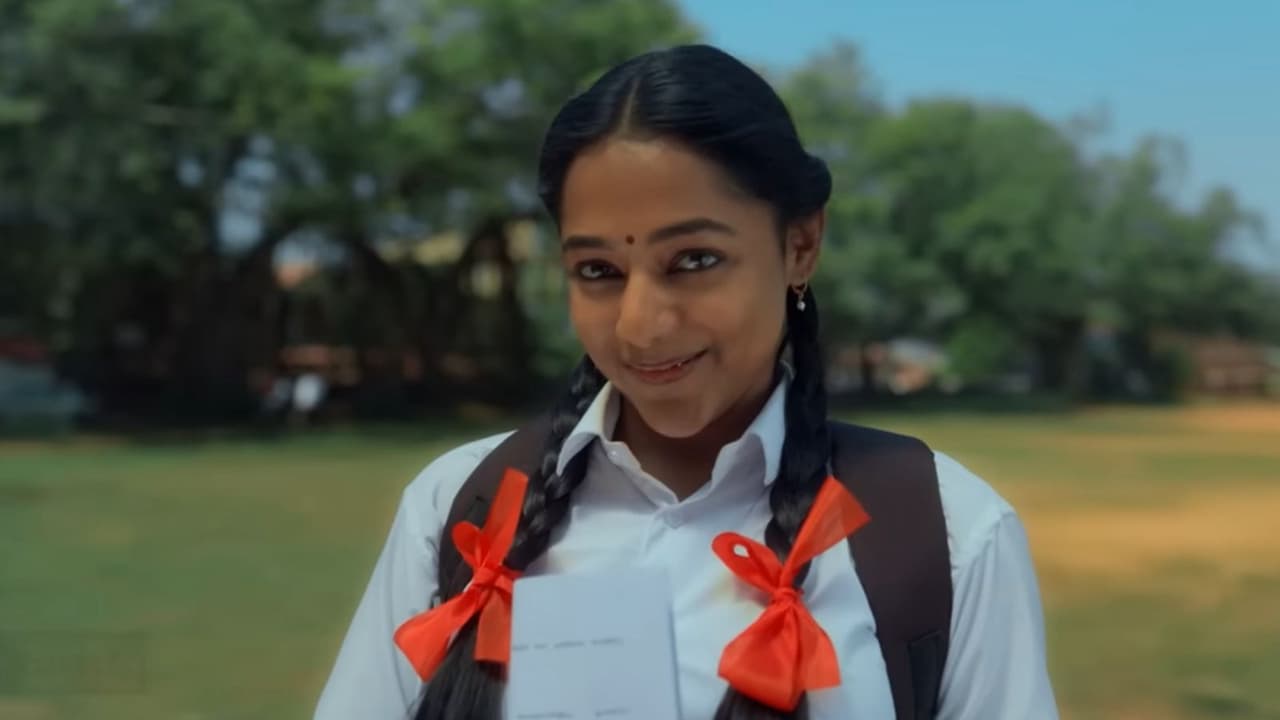Krishand’s distinct style combines dark humour, mockumentary elements, and moral ambiguity. While ambitious, the narrative’s occasional overreach is balanced by strong performances, capturing both the absurdity and emotional depth of the many lives.
Bengaluru: Krishand’s The Chronicles of 4.5 Gang is equal parts coming-of-age tragedy, black comedy, and pulpy crime epic. The show, which starts with an author stating the rise of a small gang, wears its contradictions like a scar. Told through a present-day framing device, a scarred Arikuttan hiring a ghostwriter to recast his violent past, the story unfurls in ragged, memorable episodes: a 2004 gold-smuggling heist, childhood loyalties forged in Thiruvanjipuram, a near-fatal shooting, and years of small triumphs and escalating crimes that culminate in arson, murder and a community on the brink. What makes this a subversion rather than a straight gangster yarn is its tone and method. Krishand rarely lets the violence be merely sensational; it’s often darkly comic, sometimes absurd, and always intimately tied to the characters’ desperate, childish ambitions. The ghostwriter framing does clever work: it asks us to read memory as storycraft, to distrust the author even as we’re drawn toward sympathy. The music by Sooraj Santhosh and Varkey drives the story with a frantic, restless energy, giving rhythm to a tale that unfolds like an untellable myth which is larger than life, yet rooted in raw emotion.
Plot and Treatment
Krishand’s 4.5 gang confirms him as one of Malayalam cinema’s most adventurous auteurs, a filmmaker who marries formal daring to emotional grit. With the new show, he folds his signature dark humour, mockumentary instincts and moral ambiguity into a more widescreen, strategic fable indebted to Sun Tzu’s The Art of War. The result is a nimble, often thrilling experiment: scenes that read like tactical set-pieces sit cheek-by-jowl with tender, painfully human moments, and Krishand’s eye for texture, in composition, sound and incidental detail, makes the film feel lived-in even when its ideas turn playful or allegorical. At times the film’s ambition overreaches, leaving a few narrative threads undernourished, but those rough edges are part of its charm: Krishand trusts the audience to hold contradictions, and in doing so delivers a film that’s both intellectually sharp and strangely empathetic.
The characters are strangely named, often tied to the environment, which does not shy away from turning place into personality. Like his films, the characters are also hybrid constructions, part archetype and part tenderly observed human, that slide effortlessly between satire and sorrow. Bruce Lee and his sidekick Peylakuttan arrive like nicknames plucked from local lore, while Kanji, Althaf, Maniyan and Moonga feel less like individuals than registers of a town’s moods, the aspirant, the lover, the hustler, and even Arikuttan’s jailed father is more a symbol of legacy than a mere parent. Krishand also finds humor in terribly tragic places, a skill that the director has used fully on a larger scale in 4.5 Gang. In one of the scenes where it is a matter of life and death, the comic use of these nicknames are more absurd. The ghostwriter hired to tell Arikuttan and his gang’s story copies the voice of a well-known Kerala thinker, which sometimes feels like a rip-off, but that familiar tone makes the tale easier to connect with. Krishand uses this setup to show how stories are built out of everyday things: Chemistry lab exam, cricket matches, and police station among other things. The narrative often makes a mountain out of a molehill. Those tiny sparks are shown escalating step by step into beatings, arson, and even murder. We see how a small grudge can balloon into full-scale revenge, and this exaggeration does two things: it makes the film feel intense and dramatic, and it shows how people’s fears, pride and groupthink amplify problems. At times that heightens the dark humour and gives emotional punch; at other times it can feel like the plot is forcing things to be bigger than they really are.
Performances
Top performances salvage what can feel like a ridiculously overwritten plot. The actors bring such honesty and small, lived-in details to their roles that even the most overblown scenes land emotionally: a look, a stumble, or a whispered line turns melodrama into something fragile and real. Santhy Balachandran has barely anything memorable to do on the screen, except for the recreation of an advertisement. Darshana Rajendran, with her role providing familiarity in Krishand’s Purusha Pretham, brings the same warmth and grounded presence here. She anchors the chaos with quiet conviction, reminding us of the everyday lives behind the crime and spectacle, and her performance becomes a bridge between Krishand’s earlier experiments and the madcap energy of this story. Jagadish, Niranj Maniyanpilla, Zarin Shihab, Alexander Prasanth, Sachin Joseph Kalarickal, Sanju Sivram and Indrans also deliver memorable performances.
Verdict
Like most of his films, Krishand’s latest venture is a first-of-its-kind that resists easy classification and will take time to unravel in the audience’s mind. It is not the kind of show that offers instant gratification or a neatly tied-up narrative; instead, it lingers, asking viewers to sit with its contradictions, its tonal shifts, and its layered moral ambiguities. Those willing to lean into its pace and eccentricities will find an intriguing watch. The Chronicles of 4.5 Gang is less about celebrating crime and more about exposing the absurdities of power, pride, and memory. While its ambition occasionally overshadows coherence, the daring vision, memorable performances, and darkly comic edge make it a singular addition to contemporary Malayalam storytelling. It is a work that might divide opinion, but for those who relish layered storytelling and experimental cinema, it stands as one of the most audacious and inventive offerings of recent times.
